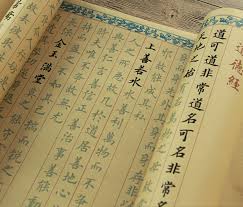Lao Zi and Dao De Jing
2 min readIt is said that Lao Zi lived about the same time as Confucius.His proper name was Li Er;and he is also known as Elder Dan,Senior Lord or Daoist Lord Lao Zi. However,few people know about his life. Legends say that he was born with grey hair in the later years of Spring and Autumn Period in Ku Prefecture of the State of Chu on the present site of Luyi County,Henan Province.
Daoist legends say that he worked as an archivist in the Imperial Library of the Zhou court,and that Confucius intentionally or accidentally met him browsing through library scrolls.In the following months,Confucius discussed ritual and propriety with Lao Zi who later resigned from his post when he saw the state indecline.Little is known about him after this point.According to an old story,herode a purple buffalo,travelled west into the State of Qin,and disappeared into the vast desert there.As he passed through the western-most gate,a guard said tohim,“Since you are about to leave the world behind,could you write a book for my sake?”Lao Zi did so.He wrote a book in two parts,setting out the meaning of TheWay and Virtue.The whole book has some 5,000 characters and it is called Dao De Jing.

What is Dao De Jing?
Dao De Jing is a philosophical prose that has had great influence on Chinese thought.It can be translated as”The Scripture of the Way and the Virtue”,and it covers many areas of philosophy,from individual spirituality to techniques for governing society.Being often referred as the book of 5,000 characters,it has two parts-dao and de.Dao De Jing has been translated into European languages,and in English alone,there are over 30 versions.

The dao part traditionally has 37 chapters.Dao is usually translated into English as”the way ahead,”and the dao is thought to be responsible for the creation and maintenance of the universe in being.The dao begets one;one begets two;two begets three;three begets the myriad creatures.
The de part comprises the other 44 chapters of the book.De has the approximate meaning of“righteousness”or”virtue”in the original English sense of inherent power.The de chapters discuss the virtue with relation to the nature or the universe and state that even the dao must follow nature.









